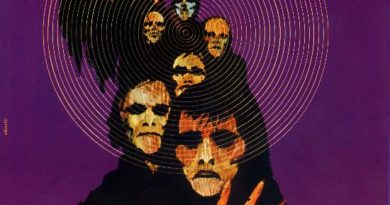Sedan Delivery
Thirty years ago, Joe Jackson released the Soundtrack for Tucker: The Man and His Dream and got a Grammy nod in the process

Joe Jackson was nearly a decade into a successful career when director Francis Ford Coppola gave him the ultimate honor of scoring one of his films. Never mind the fact that it wasn’t exactly a box office smash, but it did score Jackson some critical kudos and helped him nab a Grammy nomination for Best Album of Original Instrumental Background Score Written for a Motion Picture or TV in the process.
In some ways, the title accorded to that category was longer than the memories of most of Jackson fans, at least as far as this entry was concerned. But as an artistic leap from his earlier new wave noir and songs like “Is She Really Going Out With Him?” and “Sunday Papers,” it fulfilled a trajectory that had taken him through jazz and cabaret, the latter highlighted by his brilliant Night and Day album released six years before. It wasn’t Jackson’s first attempt at a soundtrack — 1983’s score for Mike’s Murder, which also netted Jackson a Grammy nomination, in that case for Best Instrumental Performance, could claim that distinction — but it did help illuminate the fact that Jackson no longer considered himself simply a pop performer per se and had become more of a serious auteur.
Coppola’s story revolved around the true tale of Preston Tucker, a would-be auto maker whose attempt to manufacture the Tucker Sedan in 1948 aroused the ire of the so-called “Big Three Auto Makers.” Although Coppola first conceived of the idea for a film some 15 years earlier, it wasn’t until George Lucas agreed to get involved as a co-producer that the film came to fruition.
In its initial incarnation, Coppola envisioned the film as a musical that would incorporate music by Leonard Bernstein, Betty Comden and Adolph Green, but financial problems doomed that effort to failure. By the time Jackson was recruited, the treatment had changed, but the musical motif managed to retain elements of the original, particularly in terms of the jazz and nocturnal nightclub styles that were integrated into the final mix. Orchestration also played a big part of the sonic landscape, with the songs “Freedom Swing” and closing number “Rhythm Delivery” providing its most upbeat offerings.

Only one track — “(He’s A) Shape in a Drape” — boasted vocals, a vintage scat-like attack that found Jackson in his best cool cat kind of delivery. Think of the album Jumpin’ Jive if any ready reference is concerned. The only other entry to veer from the overall approach was the offering that followed, a bit of pseudo progressive sonic experimentation titled “Factory,” a tune that hinted at the forward thinking ambitions imbued in Tucker’s designs.
Now, some 30 years on, Tucker still resonates in terms of tone and texture, but for obvious reasons it’s not remembered as one of Joe Jackson’ more memorable efforts. That’s understandable of course, given the lack of compact melodies and the soundtrack’s sprawling sound. Nevertheless, as an artistic accomplishment, it decidedly ranks among Jackson’s best.




